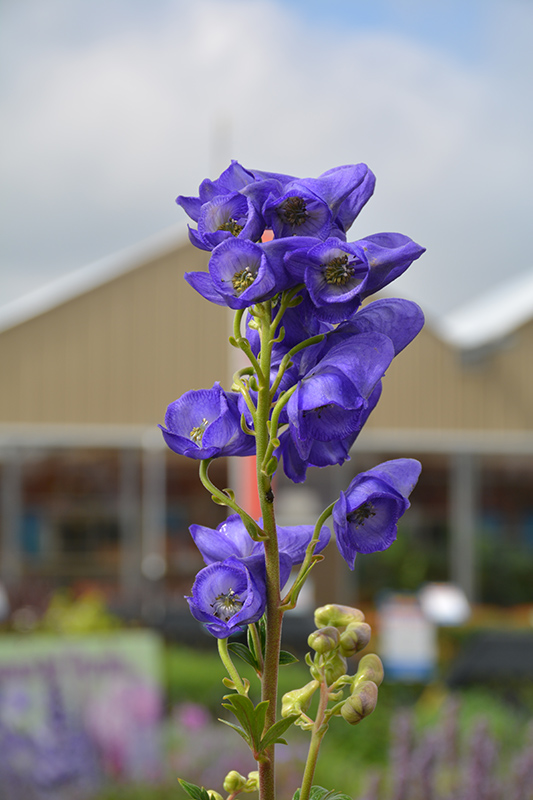|
|
|
| home | about us | loyalty program | products | directions | warranty | garden splendor ® | plant collector | landscaping | |
| Plant Finder | |
|
Plant Height: 24 inches Flower Height: 3 feet Spread: 18 inches
Sunlight:
Hardiness Zone: 3a Other Names: Fischer's Monkshood, Wolfsbane, Aconite Description: The beautifully unique blooms of monkshood are a welcome sight in any garden; grows well in shady areas; prefers fertile, well-drained soils Ornamental Features Azure Monkshood features bold spikes of indigo hooded flowers rising above the foliage from late summer to early fall. The flowers are excellent for cutting. Its attractive deeply cut ferny leaves remain dark green in color throughout the season. Landscape Attributes Azure Monkshood is an herbaceous perennial with a rigidly upright and towering form. Its relatively fine texture sets it apart from other garden plants with less refined foliage. This plant will require occasional maintenance and upkeep, and is best cleaned up in early spring before it resumes active growth for the season. It is a good choice for attracting bees, butterflies and hummingbirds to your yard, but is not particularly attractive to deer who tend to leave it alone in favor of tastier treats. It has no significant negative characteristics. Azure Monkshood is recommended for the following landscape applications;
Planting & Growing Azure Monkshood will grow to be about 24 inches tall at maturity extending to 3 feet tall with the flowers, with a spread of 18 inches. It tends to be leggy, with a typical clearance of 1 foot from the ground, and should be underplanted with lower-growing perennials. The flower stalks can be weak and so it may require staking in exposed sites or excessively rich soils. It grows at a medium rate, and under ideal conditions can be expected to live for approximately 15 years. As an herbaceous perennial, this plant will usually die back to the crown each winter, and will regrow from the base each spring. Be careful not to disturb the crown in late winter when it may not be readily seen! This plant performs well in both full sun and full shade. It prefers to grow in average to moist conditions, and shouldn't be allowed to dry out. It is not particular as to soil type or pH. It is highly tolerant of urban pollution and will even thrive in inner city environments. Consider applying a thick mulch around the root zone over the growing season to conserve soil moisture. This species is not originally from North America, and parts of it are known to be toxic to humans and animals, so care should be exercised in planting it around children and pets. It can be propagated by division. Azure Monkshood is a fine choice for the garden, but it is also a good selection for planting in outdoor pots and containers. With its upright habit of growth, it is best suited for use as a 'thriller' in the 'spiller-thriller-filler' container combination; plant it near the center of the pot, surrounded by smaller plants and those that spill over the edges. It is even sizeable enough that it can be grown alone in a suitable container. Note that when growing plants in outdoor containers and baskets, they may require more frequent waterings than they would in the yard or garden. Characteristics
Applications
Features & Attributes
|
|

